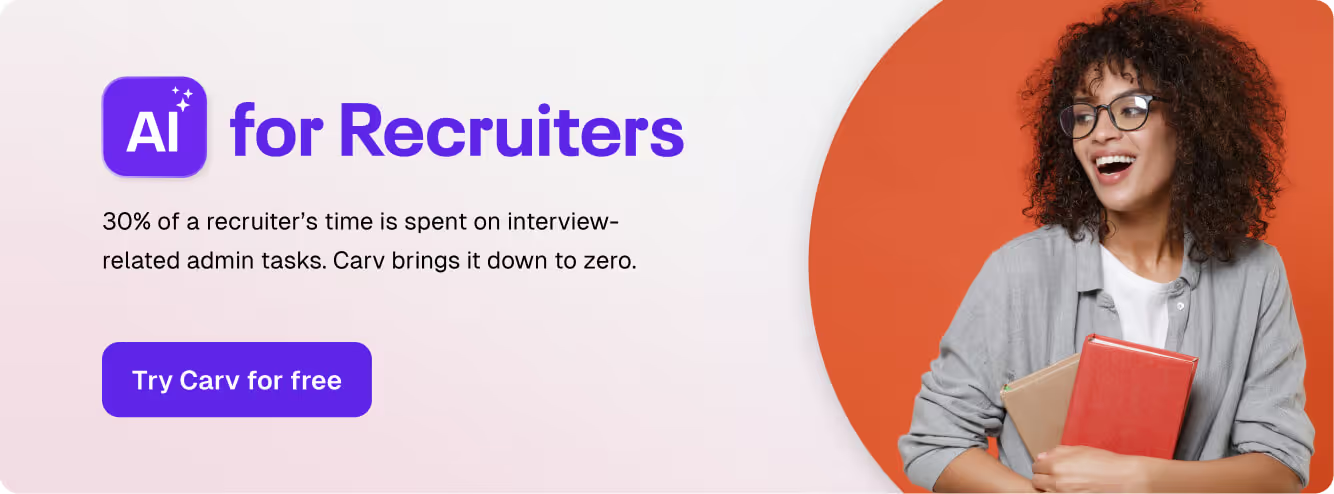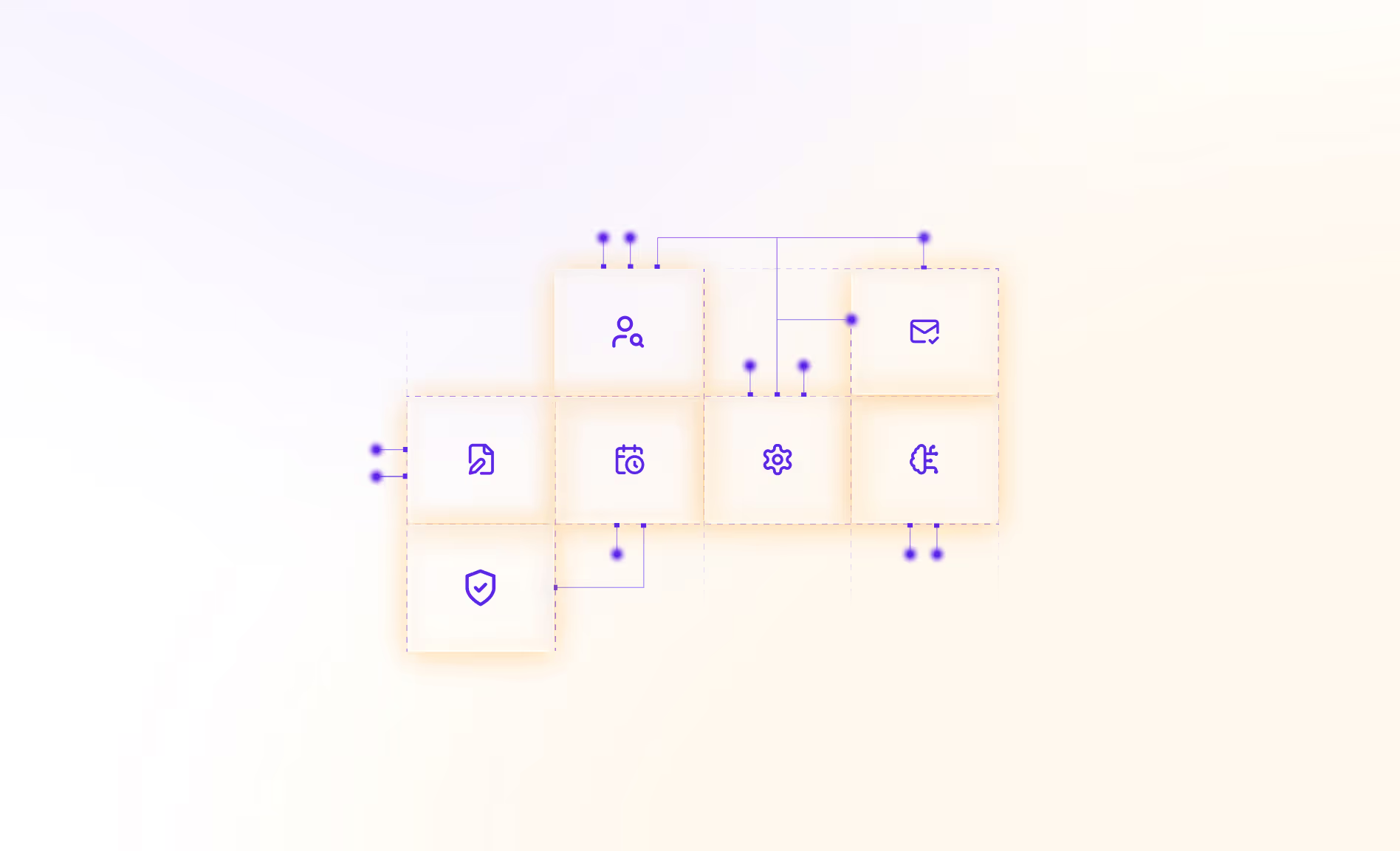Artificial intelligence is making a serious impact in almost every corner of our lives right now. But in the recruitment industry, the impact already feels colossal.
Which is why you see a lot of recruitment experts making bold statements on LinkedIn like “AI is going to take over the entire recruitment process” and “AI is going to wipe out hiring biases”.
But what we really need when talking about the current and potential future impact of AI is some solid numbers that give us a clear picture of what’s going on.
There have been a whole load of different surveys, studies and reports published even just in the last year that shed light on what we can expect from AI recruitment in the near future.
I’ve pulled the best and most valuable AI recruitment statistics I could find for you below.
Candidate sourcing and engagement statistics
We’re already seeing evidence of hiring teams having a lot of success with using AI tools like chatbots for candidate engagement. But what’s really interesting is the huge level of confidence recruiters in these tools, with the vast majority finding these tools helpful when sourcing and engaging with candidates.
- Recruiter confidence in AI as a tool for candidate sourcing: 72% of recruiters think AI is particularly helpful for candidate sourcing.
- Recruiter confidence in AI for candidate screening: 56% of recruiters who use AI in hiring find it most advantageous in screening candidates.
- Recruiter perspective on AI for candidate engagement and nurturing: 55% of recruiters who use AI in the hiring process think it’s most beneficial for nurturing candidates.
- Candidate engagement with chatbots: In a study by The Allegis Group, 58% of job seeker respondents said they’re comfortable interacting with AI chatbots in the early stages of the application process.
- Impact of AI on interview show rates: AI recruiting assistants have been proven to improve scheduled interview show rates by 20%.
- Use of AI tools for sourcing: In a survey by Mercer, 40% of companies said they use AI to source and engage talent for their hiring pipelines.
- Recruiter confidence in the impact of AI on the candidate application process: 95% of recruiters believe that AI will improve the application process for candidates.
- Impact of AI recruitment tools on candidate experience: A recent Pew Research study found that 66% of Americans are not aware of employers using AI in the hiring process, suggesting AI tools have no negative impact on the candidate experience.
Impact of AI on recruitment process efficiency
We know that by using Carv, our users are able to claw back as much as 30% of their daily time back. A few other recent studies have started to shed light on just how effective AI recruitment tools are at making the hiring process more efficient.
- AI’s improvement of time-to-fill ratio: Hilton reduced their time-to-fill ratio by 90% and improved their hiring rate by 40% using AI-powered recruitment tools to evaluate candidates.
- Impact of AI on time spent on job descriptions: 57% of recruiters who took LinkedIn’s Future of Recruiting Survey (2024) said AI makes writing job descriptions easier and faster.
- AI’s ability to automate boring admin: 45% of recruiters say AI helps automate tasks so they can spend their time on more fulfilling work and 42% say it helps remove daily mundane tasks.
- AI in the onboarding process: 76% of candidates say they ‘wouldn’t mind’ being onboarded in a new job by AI rather than a human, but 46% said they’d like a combination of humans and AI. They’d still like to be in some contact with company employees during the onboarding period.
- Time-saving benefits of AI: 44% of recruiters and 76% of hiring decision-makers say time-saving is the main benefit of implementing AI in their hiring processes.
Quality of hire and talent acquisition statistics
AI recruitment technology doesn’t just help you hire more candidates faster. It’s also been proven to improve the quality of the candidates you interview and hire through advanced machine learning and intelligent algorithms.
- Quality of candidates sourced through AI: Forbes reported on a study where job seekers who were selected by AI were 14% more likely to pass the interview stage and receive a job offer than those selected by humans.
- AI’s impact on job offer acceptance rates: Candidates sourced using AI tools were found to be 18% more like to accept a job offer.
- Use of AI for employee satisfaction: In a study of 477 HR leaders, 28% said they use AI to analyze internal talent acquisition or recruitment data.
- Reduction in time-to-hire metrics achieved through AI-powered recruitment tools: Mya Systems reports that their recruitment chatbot has reduced time-to-hire by up to 70% for some clients.
- Recruiter perspective of AI being used to make hiring decisions: 75% of recruiters think AI tools can be used to make hiring decisions, provided that human involvement exists in the process.
- Retention rates of candidates recruited with AI assistance: AI recruitment tools have been proven to increase overall employee retention by 20% by helping businesses hire better-fit candidates.
- Time saved by using AI for recruitment tasks: Chatbot software company Alorica saw one client save 1,200 hours of recruiter time over 3 months by integrating a recruiter chatbot in their hiring process.
- Increase in qualified candidates reviewed by hiring managers due to AI automation: Hiring companies can conduct more than three times the number of candidate interviews using recruitment chatbots versus managing interviews manually.
Diversity, equity, and inclusion (DEI)
The impact of AI recruitment tools on diversity, equity, and inclusion in the workplace is certainly a hot topic right now. Understanding the true impact of AI on diversity in hiring will take time and a lot of data, but here are a few insights we have for now.
- Recruiter perspective on AI’s ability to reduce bias: 68% of recruiters think introducing AI into our recruitment processes will help combat unintentional human bias.
- Candidate opinion on AI being used to make hiring decisions: 44% of candidates are comfortable with the idea of AI deciding if they’re hired for a role or not, as long as there is some human recruiter presence involved.
- AI for tackling gender bias: When AI was used to screen resumes in a study by Berkley University, it reduced gender bias by 6% compared to human screeners.
Cost reduction and ROI
There’s no doubt about it - integrating AI technology into your recruitment process saves recruiters so much time and effort that the return on investment is unquestionable. Here are some stand-out stats to prove it.
- Hiring cost savings through AI automation: AI recruitment can reduce hiring costs by 30% per hire.
- Increased revenue through use of AI: AI recruitment can increase revenue per employee by 4%.
- Efficiency boost through use of AI tools: 81% of enterprise C-level executives surveyed for an MIT study said they expect AI to boost efficiency in their industry by at least 25%.
- AI’s impact on cost per screening candidates: Some companies who use AI recruitment tools for hiring have seen cost per screening candidates reduced by 75%.
- Regional cost-savings by using AI tools: According to one report, North America made the most cost savings by integrating AI recruiting tools. Europe saved 36%.
- Comparative analysis of costs before and after AI implementation: Not a statistic but you can see a breakdown of costs and an example of ROI calculation for integrating AI in recruitment.
Technology adoption and integration
We’re already seeing businesses lay a big focus on integrating and investing in AI recruitment technology for their teams.
Here are some numbers that paint the current picture, but note that we’re expecting a huge surge in AI adoption this year meaning these numbers are likely to increase substantially in the coming months.
- Use of AI for talent management: McKinsley reports that around 60% of organizations now use AI to support with talent management in 2024.
- Adoption of AI tools for recruitment (Enterprise): In 2018, 41% of Enterprise companies were already allocating a budget to AI recruitment tools, according to Statista.
- Adoption of AI tools for recruitment (SME): 36% of small-to-medium businesses were already allocating a budget to AI recruitment tools in 2018, according to Statista.
- Adoption of recruitment chatbots: 41% of companies now use chatbots in part of the recruitment process.
- Barriers for AI technology adoption: A survey of 477 HR leaders reported 3 barriers that were stopping them from using AI in talent acquisition: That their systems didn’t integrate with AI tools (47%), that they weren’t aware of how effective AI tools can be (38%) and that they generally didn’t know enough about recruitment AI tools (36%).
- Integration challenges and success stories of AI implementation: Executives believe that initiatives around redesigning work to incorporate AI and automation will deliver the most business growth in 2024.
- Trends in AI usage across different stages of the recruitment process: Mercer found that 81% of companies use AI for screening, 60% for interviewing across all positions, and 50% for candidate evaluation. 38% of respondents said sourcing and engaging talent for pipeline purposes is the most popular use of AI in TA.
Future outlook and industry trends
There’s nothing more exciting (and a little overwhelming!) than looking at current AI recruitment trends and projections about the future of the industry. Here are a few of my favourites:
- AI market projections: The global AI market is expected to reach $1.81 trillion by 2030, with the AI recruitment market forecasted to reach $942.3 million by 2030.
- AI recruitment global market size: AI recruitment industry’s global market size is $590.50 billion as of 2023.
- Future of AI’s role in hiring and firing: 79% of recruiters believe AI will soon be able to make hiring and firing decisions.
- Projections on AI taking over the recruiter’s role: In fact, 77% of HR professionals think that soon, humans won’t need to be involved in the recruitment process at all.
- Recruiters are recognising the need for AI recruitment: The number of recruiters and hiring managers who added AI skills to their LinkedIn profiles jumped 14% in 2023 — in 2024, this number is likely to be even higher.
- AI tool integration as a priority for businesses in 2024: In a large study of 12,000+ C-suite executives, “Redesigning work to incorporate AI and automation” was cited as the 5th most important priority for 2024.
...and it’s only the beginning
The recruitment AI market is still in its infancy. So really, these numbers are just the tip of the iceberg!
With a major adoption surge of recruitment AI tools expected in 2024, it’s likely we’ll see a whole lot more data filtering through in the coming months that show the major impact AI is having on hiring.
Until then, you can keep up with the latest advancements in AI recruitment technology and how it’s redefining the future of TA by reading the Carv blog or tuning into our podcast.



.avif)



%20(1).avif)
.avif)